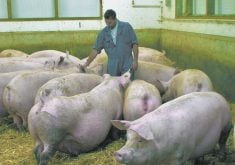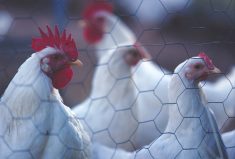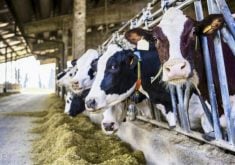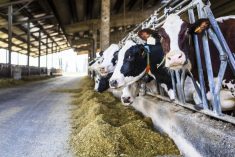University of Guelph professor Dr. Gisèle LaPointe has secured $3.5 million in federal funding to lead a collaborative research effort into the future competitiveness and sustainability of Canada’s dairy sector.
The project also leverages a $1 million commitment from the Dairy Farmers of Ontario (DFO) marketing board.
LaPointe’s Dairy Alliance proposal was among successful applicants for the 2021 Alliance grants of the National Science and Engineering Research Council (NSERC) and includes additional partners dairy processor Lactalis, feed ingredients manufacturer Lallemand, and Quebec-based dairy research coalition Novalait.
Read Also
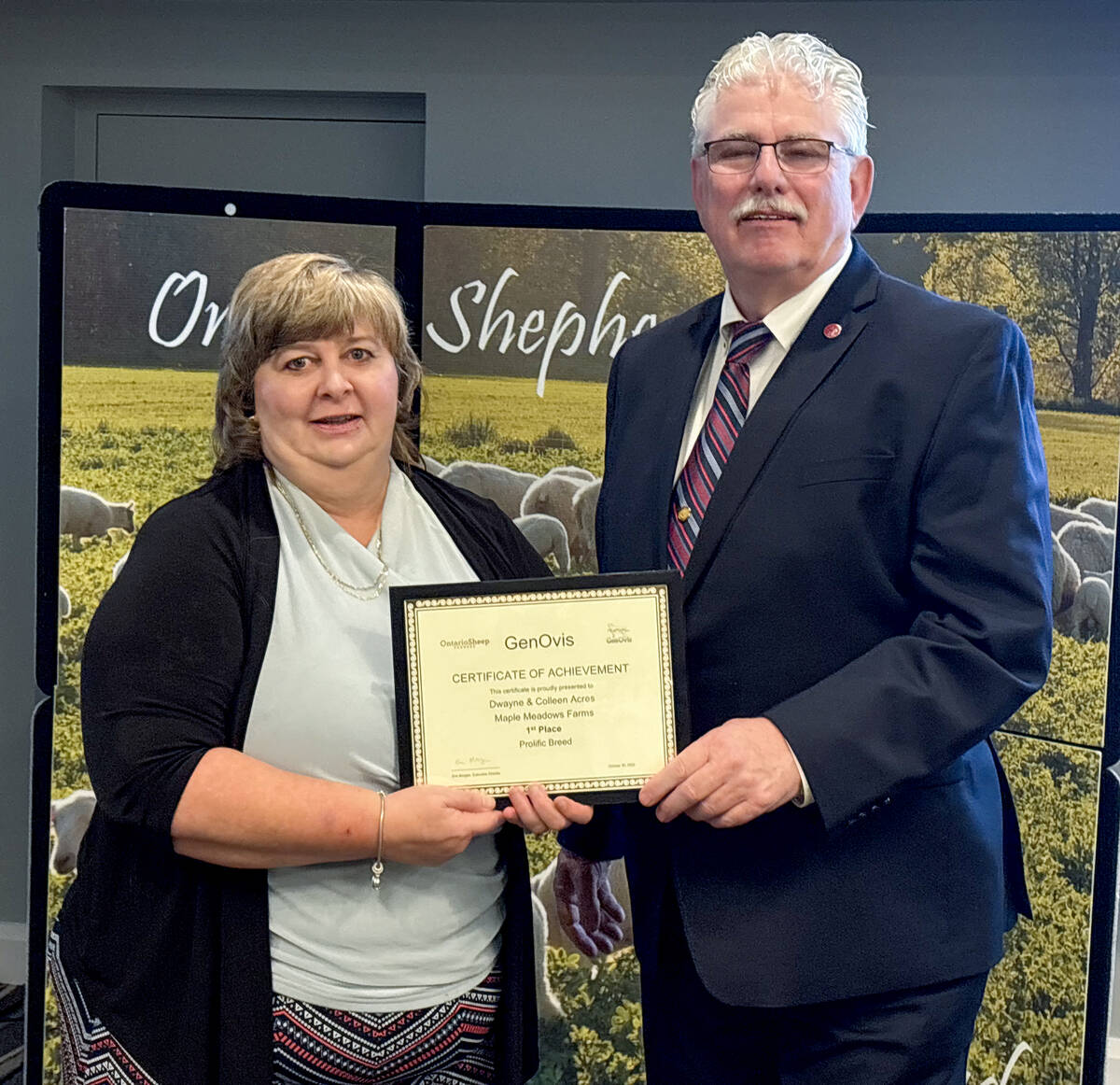
GenOvis awards presented at Ontario Sheep Farmers’ annual meeting
Producers and youth were recognized for their contributions during the Ontario Sheep Farmers’ annual GenOvis and leadership awards.
Why it matters: Being able to tell a story about dairy farm sustainability also requires data to back up those claims.
A specialist in nutritional microbiology, LaPointe has served since 2016 as the NSERC/DFO Industrial Research Chair in Dairy Microbiology based at University of Guelph. She told Farmtario she expects the new five-year collaboration to eventually include work by 42 “young scientists” at the undergraduate, graduate, postdoctoral and research associate levels.

LaPointe said topics of research were set out during the NSERC funding application process. These topics were inspired by Dairy Farmers of Canada’s National Dairy Research Strategy. The Strategy, LaPointe explained, is “based on a nationwide consultation process to identify the needs and priorities of the dairy sector (and) is built on innovation to achieve an increase in farm efficiency and sustainability, enhance animal health, care and welfare practices, as well as support the role of dairy in nutritious, healthy and sustainable diets for consumers.”
She added the new Dairy Alliance’s research priorities are also informed by previous work she was involved with as NSERC Industrial Research Chair.
Four themes of study will be pursued:
- Farm sustainability – new feed ingredients, mitigating methane emissions, increasing cattle feed efficiency
- Animal health and welfare – designing microbial treatments and preventing housing contamination
- Milk composition, quality and safety – understanding impacts of farm management practices on shelf life and processing streams to maintain the regional flavours of Canadian cheeses while reducing dairy product spoilage and waste
- Dairy in human nutrition and health – control of food-borne pathogens and reducing antimicrobial gene persistence in gut microbes of dairy cattle
“Those aspects are intended to improve human and animal health as well as environmental health,” said LaPointe. “Dairy farmers are making efforts to optimize land use, while reducing antimicrobial use, water consumption and the carbon footprint of milk production.”
She added the Alliance’s work “will help strengthen collaborations between the Canadian producer and processor groups.”
Aside from LaPointe’s microbiology specialty, the NSERC Dairy Alliance will also include work by researchers in the departments of Animal Biosciences, Food Science, Pathobiology, and Population Medicine. The total five-year budget, including other partners’ financial and in-kind contributions, is $6.1 million.
The participation of DFO, however, was instrumental. LaPointe explained she presented the idea for an NSERC Alliance grant to the marketing board as the NSERC Industrial Research Chair position was winding down. The DFO board agreed to the $1-million commitment contingent on matching funding from other partners – which LaPointe was able to secure.
“DFO was then instrumental in developing the vision behind this current collaboration by contributing their perspectives on the growing trends in areas of research to prioritize,” she continued.
The final proposal was approved by DFO and presented to all partners for comments and ideas before being submitted to NSERC.
DFO CEO Cheryl Smith said this follows up on 30 years of support by the marketing board for microbiology research at the University of Guelph.
“DFO’s $1-million investment will bring competitiveness to dairy farmers by helping monitor and detect any bacteria or disease in real-time. This ultimately supports waste reduction and cost savings,” said Smith in a news release. “The research findings will help bring improved dairy products to market and solidify consumer trust in our food supply chain.”
LaPointe says dairy farmers in Ontario can support the Dairy Alliance’s goals by participating in DFO-organized activities related to the research priorities and to the dairy processing sector. “Further along in the project, there may be some opportunities to participate directly in the research as new tools and approaches are being implemented.”







